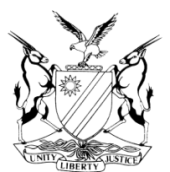3
REPUBLIC OF NAMIBIA

IN THE HIGH COURT OF NAMIBIA, MAIN DIVISION, WINDHOEK
REVIEW JUDGMENT
Case Title: S v Franklin George Diergaard | CR NO: 16/2021 | |
Division of Court: Main Division | ||
Heard before: Honourable Mrs. Justice Shivute J et Honourable Mr Justice Miller AJ | Delivered on: 8 March 2021 | |
Neutral citation: S v Diergaard (CR 16/2021) [2021] ] NAHCMD 99 (8 March 2021) | ||
| IT IS ORDERED THAT:
of s 112(1) (b) of the Criminal Procedure Act, 51 of 1977.
| ||
Reasons for the above order: | ||
SHIVUTE J (MILLER AJ concurring): [1] The accused pleaded guilty to a main charge of driving under the influence of intoxicating liquor in contravention of section 82 (1) (a) read with sections 1, 86, 89 (1) and 89 (4) of the Road Traffic and Transportation Act, 22 of 1999. The court thereafter questioned him in terms of section 112(1) (b) of the Criminal Procedure Act 51 of 1977. He was convicted as charged and sentenced to a fine of N$5000 or 12 months’ imprisonment. [2] On review, I directed a query to the learned magistrate as to how the court satisfied itself that the accused admitted all the elements of the offence if no question was asked whether the intoxicating liquor had impaired his skills or affected his ability to drive. [3] In reply, the learned magistrate conceded that a crucial fact was omitted thus, making it impossible for the court to be satisfied with the guilt of the accused. She thereafter requested that the conviction be set aside and the matter remitted to the court a quo to apply section 113 of Act 51 of 1977. [4] A plea of guilty to a charge of driving a motor vehicle while under the influence of liquor must incorporate an admission that the accused’s driving ability was impaired as a result of the consumption of intoxicating liquor. This is necessary on account of the relevant substantive law requirement that ‘the skill and judgment normally required of a driver in the manipulation of a vehicle (must be) diminished or impaired as a result of the consumption of intoxicating liquor.’1 [5] In S v Mzimba2 the court noted as follows with regard to this essential requirement: ‘This element of the crime requires an impairment, not only of an accused's state of mind, i.e. that the alcohol induced him to a state that he was prepared to take risks, but that his driving ability was impaired. It is therefore necessary that an accused charged with an offence of drunken driving should admit that he/she lacked the necessary skill and judgment normally required in the manipulation of a motor vehicle and that such skill or judgment has been diminished or impaired as a result of the consumption of alcohol or drugs.’ [6] It follows that, the correct procedure in such an instance is to change the plea of guilty to one of not guilty. The court cannot be satisfied with the accused’s plea of guilt because he did not admit all the elements of the offence he is charged with. [7] In the result:
of s 112(1) (b) of the Criminal Procedure Act, 51 of 1977.
| ||
NN SHIVUTE JUDGE | PJ MILLER ACTING JUDGE | |
1 S v Funani (4/2015) [2015] ZAECBHC 8 (17 April 2015)
2 S v Mzimba 2012 (2) SACR 233 (KZP) at par [6].